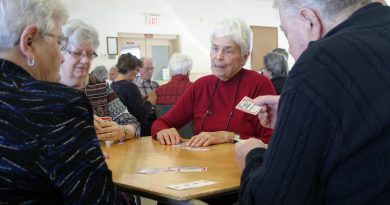Council briefs: Short, long-term COVID-19 implications, rural economic strategy and O-Train corrective action
Special to WC Online
OTTAWA – Ottawa city council’s second conference-call council meeting today (April 8) focused on the short and long-term implications of the COVID-19 pandemic.
Council received an update on the impact of COVID-19 on the city’s staff and finances, as well as the community.
“The city has taken significant action in the last few weeks to help flatten the curve and protect staff and residents,” city staff released in a statement today. “All departments are working together on a business continuity plan to ensure the city’s finances remain stable and that services continue to be delivered. The city is preparing for the long haul so it can maintain a healthy and nimble workforce that can be safely redeployed to deliver essential services in different parts of the organization.”
COVID-19 has had a financial impact on the city’s operating budget and cash flow, and on assistance from other levels of government. The city forecasts a $102-million reduction in revenue if the pandemic ends in June, a $186-million reduction if in September, and a $273-million reduction if in December. To mitigate the potential shortfall, the city implemented emergency leave for part-time and casual staff, and staff will continue to explore additional measures, such as reducing discretionary spending and pausing non-essential hiring for vacant positions. Staff will report back on mitigation strategies as the situation evolves.
Ottawa Public Health’s (OPH) models show the importance of physical distancing. The city and OPH continue to increase health care and testing capacity, and to expand support to partners and Ottawa’s most vulnerable residents.
Rural economic strategy approved
A new strategy will help stimulate economic growth in West Carleton-March, Cumberland, Osgoode and Rideau-Goulbourn wards. Council approved the Rural Economic Development Strategy and Action Plan, along with a $150,000 investment in 2020 to help create jobs in rural Ottawa. The plan focusses on supporting rural businesses, improving quality of life for rural residents, strengthening rural tourism, investing in agriculture and agri-food production, and advocating for rural priorities.
City tax supported services end 2019 with surplus
City-wide tax supported services ended 2019 with a $2.8-million operating surplus. Council approved transferring $2 million to the tax-stabilization reserve and $750,000 to fund new software to manage planning and permit applications. An additional $3.6 million in operating surpluses from the Ottawa Police Service, the Ottawa Public Library and Water Services will go to their respective reserves.
O-Train corrective action plan
The City received a corrective action plan from Rideau Transit Group on Tuesday, March 31, outlining the steps the consortium is taking to correct performance issues with the Confederation Line. City council today received an overview of the plan. Staff asked Rideau Transit Group to revise the plan and provide additional supporting information. Staff will share more details with council once the city receives an updated plan.
Council approved finding an independent consultant to review the lessons learned from the procurement of Stage 2 LRT. Staff will recommend a consultant and budget to the Finance and Economic Development Committee by June and present the consultant’s findings by the end of the year.
City solidarity in fight against COVID-19
To show the city’s solidarity in Canada’s fight against COVID-19, Council passed a motion to hang a large Canadian flag from the roof of City Hall, facing Marion Dewar Plaza. The flag will be installed on Thursday, April 9.











